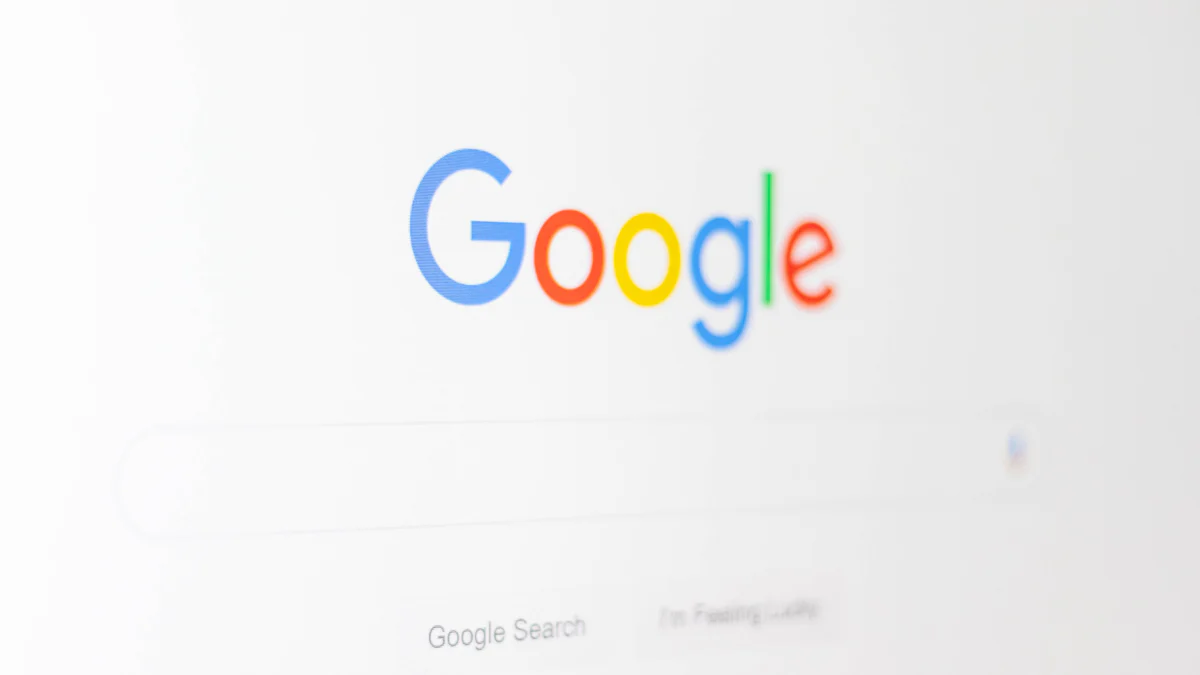Google SEO vs Bing SEO: Key Differences Explained

Search Engine Optimization (SEO) plays a crucial role in enhancing online visibility. SEO helps websites rank higher on search engine results pages (SERPs). Google and Bing stand as two major search engines, each with distinct features. Google processes around 99,000 search queries per second globally. Bing offers unique advantages in keyword matching and transparency. Comparing Google SEO vs Bing SEO reveals key differences. These differences impact strategies for optimizing content for each platform. Understanding these distinctions helps businesses tailor their SEO efforts effectively.
Historical Context and Market Share
Evolution of Google SEO
Key milestones in Google's algorithm development
Google's algorithm has undergone several significant changes over the years. The launch of the PageRank system in 1998 marked a turning point. This system evaluated the importance of web pages based on the number and quality of links. In 2011, Google introduced the Panda update to reduce low-quality content in search results. The Penguin update in 2012 targeted websites with spammy link practices. The Hummingbird update in 2013 improved the understanding of search queries. These updates have shaped how websites optimize for Google.
Impact on SEO practices
Each algorithm update has influenced SEO strategies. The focus on high-quality content became essential after the Panda update. Websites needed to ensure that links were natural and relevant due to the Penguin update. The Hummingbird update emphasized the importance of semantic search. SEO practitioners had to adapt to these changes to maintain or improve their rankings. Understanding Google's algorithm became crucial for effective SEO.
Evolution of Bing SEO
Key milestones in Bing's algorithm development
Bing has also experienced significant developments. The introduction of the 'Tiger' index-serving technology in August 2011 improved search efficiency. Bing underwent a redesign in 2015 to enhance user experience. The rebranding to Microsoft Bing in October 2020 marked another milestone. These changes aimed to improve search accuracy and user satisfaction.
Impact on SEO practices
Bing's updates have influenced SEO approaches differently than Google's. Exact-match keywords hold more importance in Bing's algorithm. Bing places emphasis on the quantity and anchor text of links. Links from .edu and .gov domains are particularly valued. Bing's transparency about ranking factors allows for more targeted SEO strategies. Understanding Bing's unique requirements is vital for optimizing content effectively.
Market Share Comparison
Current market share statistics
Google dominates the search engine market with a significant share. As of recent statistics, Google holds approximately 92% of the global market share. Bing accounts for around 2.7% of the market. Despite the smaller share, Bing remains a valuable platform for specific audiences.
Implications for SEO strategies
The market share differences impact SEO strategies. Businesses often prioritize Google due to its vast reach. However, optimizing for Bing can offer advantages in certain niches. Bing users tend to engage more actively with content. Tailoring SEO efforts for both platforms can maximize visibility and engagement. Understanding the unique aspects of each search engine is essential for effective SEO planning.
Google SEO vs Bing SEO: Algorithm Differences

Google's Algorithm
Core components and updates
Google's algorithm stands out for its complexity and frequent updates. The algorithm emphasizes content quality, user experience, and relevance. Google uses mobile-first indexing to prioritize mobile-friendly websites. The algorithm incorporates E.E.A.T. (Experience, Expertise, Authoritativeness, Trustworthiness) principles. Frequent updates ensure the delivery of relevant results to users.
Impact on ranking factors
Google's focus on high-quality content influences ranking factors significantly. Websites need reputable backlinks to improve rankings. Google's algorithm values data relevance and an immersive narrative of information. The emphasis on semantic search helps understand user intent better. This approach requires websites to optimize content for user engagement and relevance.
Bing's Algorithm
Core components and updates
Bing's algorithm differs from Google's in several ways. The algorithm places more emphasis on exact-match keywords and keyword density. Bing values multimedia content and social signals in its rankings. The algorithm favors older, well-established websites. Bing's transparency about ranking factors aids in targeted SEO strategies.
Impact on ranking factors
Bing's algorithm prioritizes different aspects compared to Google. Exact-match domain names and keywords hold more weight. Social signals from platforms like Twitter and Facebook influence rankings. Bing gives importance to meta keywords and descriptions. The algorithm may prioritize quantity alongside quality for backlinks. Bing's approach requires a focus on straightforward keyword optimization.
User Engagement and Experience
Google's Approach
User interface and experience
Google prioritizes a seamless user interface. The design focuses on simplicity and speed. Users find information quickly with minimal distractions. Google offers features like autocomplete and rich snippets. These features enhance the search experience. Google continuously updates its interface to improve usability.
Engagement metrics
Google tracks various engagement metrics. These include click-through rates (CTR) and bounce rates. Google users often show high engagement levels. The platform's vast reach contributes to this trend. Google analyzes user behavior to refine search results. This analysis helps deliver more relevant content to users.
Bing's Approach
User interface and experience
Bing provides a visually appealing interface. The homepage often features stunning images. Bing emphasizes multimedia content in search results. Users enjoy a rich and engaging experience. The platform integrates social media signals. This integration enhances the user interaction.
Engagement metrics
Bing users exhibit distinct engagement patterns. Bing's CTR is notably higher than Google's. Users spend more time on pages and view more content. Bing's bounce rate is slightly higher, indicating varied user interactions. The platform updates its index less frequently. This slower update cycle affects user engagement dynamics.
Technical SEO Aspects
Google SEO Techniques
Mobile optimization
Google places a strong emphasis on mobile optimization. Mobile-friendly websites rank higher in search results. Google uses mobile-first indexing to prioritize mobile content. Websites need responsive designs for better user experiences. Mobile optimization involves fast loading times and easy navigation. Google Search Console offers tools to test mobile usability.
Site speed and performance
Site speed is crucial for Google SEO. Faster websites provide better user experiences. Google considers site speed as a ranking factor. Websites should minimize image sizes and use browser caching. Tools like Google PageSpeed Insights help analyze performance. Improving site speed enhances user engagement and satisfaction.
Bing SEO Techniques
Mobile optimization
Bing also values mobile optimization. Mobile-friendly sites perform better in Bing's rankings. Bing Webmaster Tools provide insights into mobile usability. Websites should ensure compatibility with various devices. Mobile optimization includes intuitive layouts and quick load times. Bing emphasizes the importance of a seamless mobile experience.
Site speed and performance
Site speed impacts Bing SEO significantly. Faster sites lead to higher user satisfaction. Bing favors websites with efficient loading times. Webmasters should optimize images and scripts for speed. Bing Webmaster Tools offer performance analysis features. Enhancing site speed boosts visibility and engagement on Bing.
Expert Insights and Opinions
Perspectives from SEO Professionals
Common challenges and solutions
SEO professionals face unique challenges when optimizing for Google and Bing. Google frequently updates its algorithm. These updates require constant adaptation. SEO experts must stay informed about changes. Bing's preference for exact-match keywords presents another challenge. Professionals need to adjust keyword strategies accordingly. Both platforms demand high-quality content. SEO specialists focus on creating valuable and relevant material. Link-building strategies differ between Google and Bing. Experts tailor approaches to meet each search engine's requirements.
Best practices for each platform
SEO professionals recommend specific practices for Google. High-quality content remains a priority. Websites should focus on user experience and engagement. Mobile optimization is crucial for Google rankings. Fast-loading sites perform better in search results. Backlinks from reputable sources enhance credibility. For Bing, exact-match keywords hold importance. Professionals suggest using clear and concise keywords. Bing values multimedia content. Incorporating images and videos can improve rankings. Social signals influence Bing's algorithm. Engaging with social media platforms boosts visibility.
FAQs
Common Questions about Google SEO
How does Google's algorithm impact SEO strategies?
Google's algorithm significantly influences SEO strategies. The algorithm focuses on content quality, user experience, and relevance. Websites must ensure high-quality content to rank well. Google values reputable backlinks for credibility. Mobile-first indexing prioritizes mobile-friendly websites. Frequent updates require constant adaptation. These factors shape how you optimize content for Google.
What are the best practices for optimizing for Google?
Optimizing for Google involves several best practices. High-quality content remains a priority. Websites should focus on user engagement and experience. Mobile optimization is crucial for better rankings. Fast-loading sites perform better in search results. Backlinks from reputable sources enhance credibility. These practices help improve visibility on Google.
Common Questions about Bing SEO
How does Bing's algorithm differ from Google's?
Bing's algorithm differs from Google's in several ways. Exact-match keywords hold more importance in Bing's algorithm. Bing places emphasis on the quantity and anchor text of links. Links from .edu and .gov domains are particularly valued. Bing values multimedia content and social signals. Older, well-established websites often rank higher. These differences impact how you optimize for Bing.
What are the key factors for Bing SEO success?
Several key factors contribute to Bing SEO success. Exact-match keywords play a significant role. Bing values multimedia content like images and videos. Social signals from platforms like Twitter and Facebook influence rankings. Bing emphasizes page load speed and mobile-friendliness. User engagement metrics also affect rankings. Focusing on these factors can improve performance on Bing.
Future Trends in SEO

Emerging Trends for Google SEO
Predicted algorithm changes
Google's algorithm will likely continue to evolve with a focus on user experience. The company will prioritize content quality and relevance. Machine learning and artificial intelligence will play a larger role in search results. Google's algorithm will adapt to understand user intent more accurately. Voice search optimization will become increasingly important. Websites will need to optimize for natural language queries.
New SEO strategies
SEO strategies for Google will emphasize user engagement. Content creators will focus on producing high-quality, informative material. Mobile optimization will remain crucial for better rankings. Websites will need to ensure fast loading times. Structured data will help improve search visibility. Video content will gain importance as part of SEO efforts.
Emerging Trends for Bing SEO
Predicted algorithm changes
Bing's algorithm will continue to value exact-match keywords. Social signals will influence page rankings more significantly. Bing will place emphasis on user engagement metrics. The algorithm will favor well-established websites. Bing will likely enhance its transparency about ranking factors. Page load speed and mobile-friendliness will remain key considerations.
New SEO strategies
SEO strategies for Bing will focus on keyword optimization. Websites will benefit from incorporating multimedia content. Social media marketing will align with SEO efforts. Bing will reward sites with strong social signals. On-page optimization will play a critical role in rankings. Websites will aim to improve user experience and engagement.
Google SEO and Bing SEO present distinct differences. Google emphasizes content quality and user experience. Bing focuses on exact-match keywords and social signals. Each search engine requires unique strategies for optimization. Businesses should choose an SEO strategy based on target audience and goals. Staying updated with SEO trends is crucial for success. Search engines continuously evolve, impacting ranking factors. Regularly reviewing and adapting SEO strategies ensures relevance. Understanding these dynamics enhances online visibility and engagement.
See Also
Revealing the Enchantment: Understanding SEO Writing Clarified
Fast SEO Victories for Novices: The Definitive Manual to Enhance Blog Rankings
Recognizing the Significance of Blog On-Page SEO: An In-Depth Summary
Which SEO Forecasts or Forecasters are you Monitoring in 2024?

